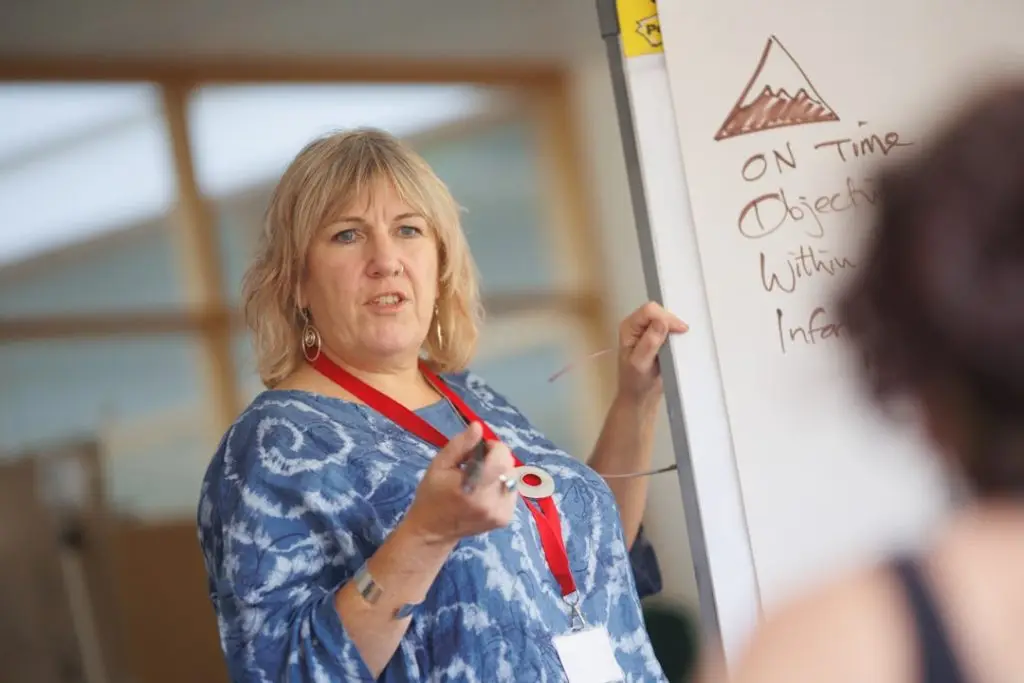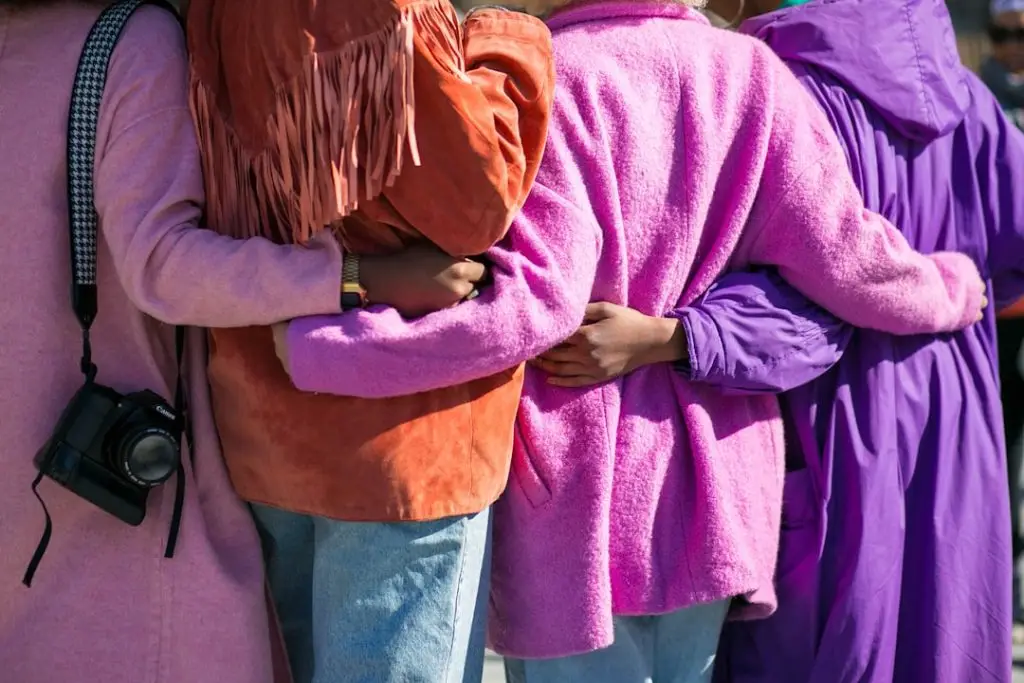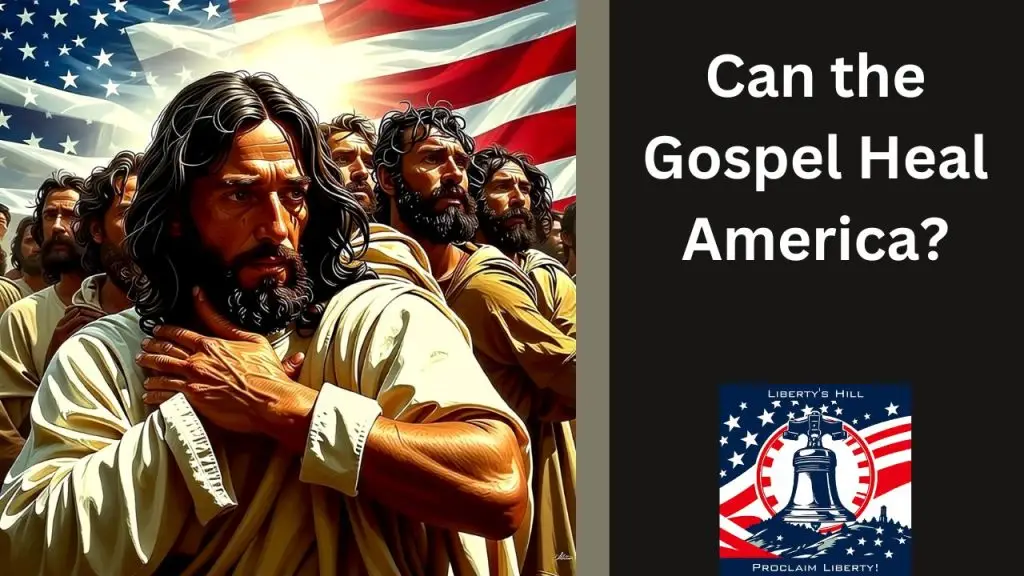Can the Gospel Heal America?
In today’s world, the intersection of faith and societal healing is more crucial than ever. Dr. Bill Brannan, a pastor at Life Springs Church in Liberty Hill, Texas, poses an important question: Can the gospel heal America? This blog explores the implications of this question and delves into the transformative power of the gospel for all nations, not just for believers.

Photo by Yosuke Ota on Unsplash
The Healing River of Life
One of the captivating images in scripture is the metaphor of a River of Life flowing from the Throne of God. This river represents a source of healing, rejuvenating everything it touches. The trees along its banks bear fruit every month, with their leaves designated for the healing of nations. This imagery suggests that nations still require healing, pointing to a prophetic reality that should manifest before Christ’s return.
The inference here is clear: when this river flows, nations move toward healing. Conversely, when it does not, they trend toward death. Unfortunately, the current expectation surrounding the gospel’s healing potential is low, particularly within the church. Historically, the church anticipated that the gospel would improve the world for everyone, not just Christians.

Photo by Caz Hayek on Unsplash
Shifting Perspectives on the Gospel
Why do we have such little expectation of the gospel’s power to heal? One reason could be our rigid understanding of the gospel’s forms. Many believers may feel disillusioned because they do not see the gospel actively transforming the world around them. What if we began with the belief that the gospel is indeed meant to heal nations? This shift in perspective could lead us to reevaluate our approach and the necessary changes for this prophecy to come to fruition.
Dr. Brannan emphasizes that a key to healing nations lies in transforming the church by rediscovering the treasures hidden in Christ and his word. In the Gospel of Matthew, Jesus sends out his apostles with a clear mandate: heal the sick, cleanse lepers, raise the dead, and cast out demons. This directive was not just a historical account but remains relevant today.

Photo by Alexander Grey on Unsplash
Empowering Believers for Action
Many believers might feel unequipped to fulfill this calling. It’s essential to recognize that while the literal interpretation of these acts is vital, it should not be the sole focus. Instead, understanding the principles behind these actions can empower individuals to enact healing in their communities.
Historically, Christians viewed their commission as a call to extend the boundaries of paradise throughout the earth. This understanding motivated them to innovate and create technologies aimed at improving the world, from water wheels to advancements in medicine. The driving force behind these innovations was a desire to help others, not to exploit them.

Photo by Edwin Martens on Unsplash
Reclaiming Science and Technology
When science and technology detach from a biblical moral framework, they can become tools of exploitation rather than healing. The challenge lies in reappropriating these tools for the benefit of humanity. By applying biblical principles, individuals can fulfill Christ’s commission in various practical ways, addressing societal issues while fostering healing.
Another crucial aspect of this healing process involves teaching forgiveness and accountability. Forgiveness is essential, regardless of whether an apology is offered. Holding onto grudges can become a source of emotional turmoil, hindering personal and communal healing. By promoting forgiveness and teaching individuals to take responsibility for their actions, we can foster a culture of healing and reconciliation.

Photo by Centre for Ageing Better on Unsplash
The Impact of Forgiveness and Apologies
Dr. Brannan highlights the work of Frank Buckman, who successfully reconciled capital and labor across nations, even in contexts where individuals did not embrace Christianity. This raises a thought-provoking question: Could an emphasis on forgiveness and accountability be robbing the world of healing? Jesus healed ten lepers, yet only one returned to express gratitude. His healing was not contingent upon their faith or acknowledgment; it stemmed from a place of love.
This unconditioned love mirrors the essence of the gospel, showcasing that healing can occur irrespective of faith. The world will recognize Christians by their love, and that love can lead to healing in society.

Photo by Katherine Hanlon on Unsplash
Transforming the Church for Healing
Dr. Brannan passionately believes that the gospel has the potential to heal America and every nation. The transformation of the church is integral to this healing process. There are numerous practical ways to express the principles of Jesus’s commission, and it is vital to engage in conversations about these possibilities.
As we consider the myriad ways to apply these biblical principles, it’s essential to invite diverse voices into the conversation. This dialogue can spark innovative ideas and strategies to address the pressing issues faced by our communities today.

Photo by Vonecia Carswell on Unsplash
Extending Healing Beyond Believers
In his next video, Dr. Brannan will explore whether unbelievers can heal nations by applying biblical principles. This question challenges the notion that only those within the faith can effect change. It prompts us to consider the broader implications of living out gospel principles in society, regardless of one’s faith affiliation.
As we engage with these ideas, it’s crucial to reflect on our roles as individuals and communities. How can we embody the principles of the gospel to foster healing and transformation in our world? The answers may lie in our willingness to embrace love, forgiveness, and the proactive application of biblical teachings.

Photo by freestocks on Unsplash
Conclusion
The notion that the gospel can heal nations is not merely a theoretical concept; it is a call to action. By transforming the church and rediscovering the treasures of the gospel, we can unlock its potential to bring healing not only to believers but to all of humanity. The journey toward healing begins with each of us, and together, we can create a world characterized by liberty, justice, dignity, and prosperity.
We invite you to share your thoughts and ideas in the comments below. How can we work together to heal our communities and nations? Let’s continue this important conversation and explore the possibilities of a transformed world.


